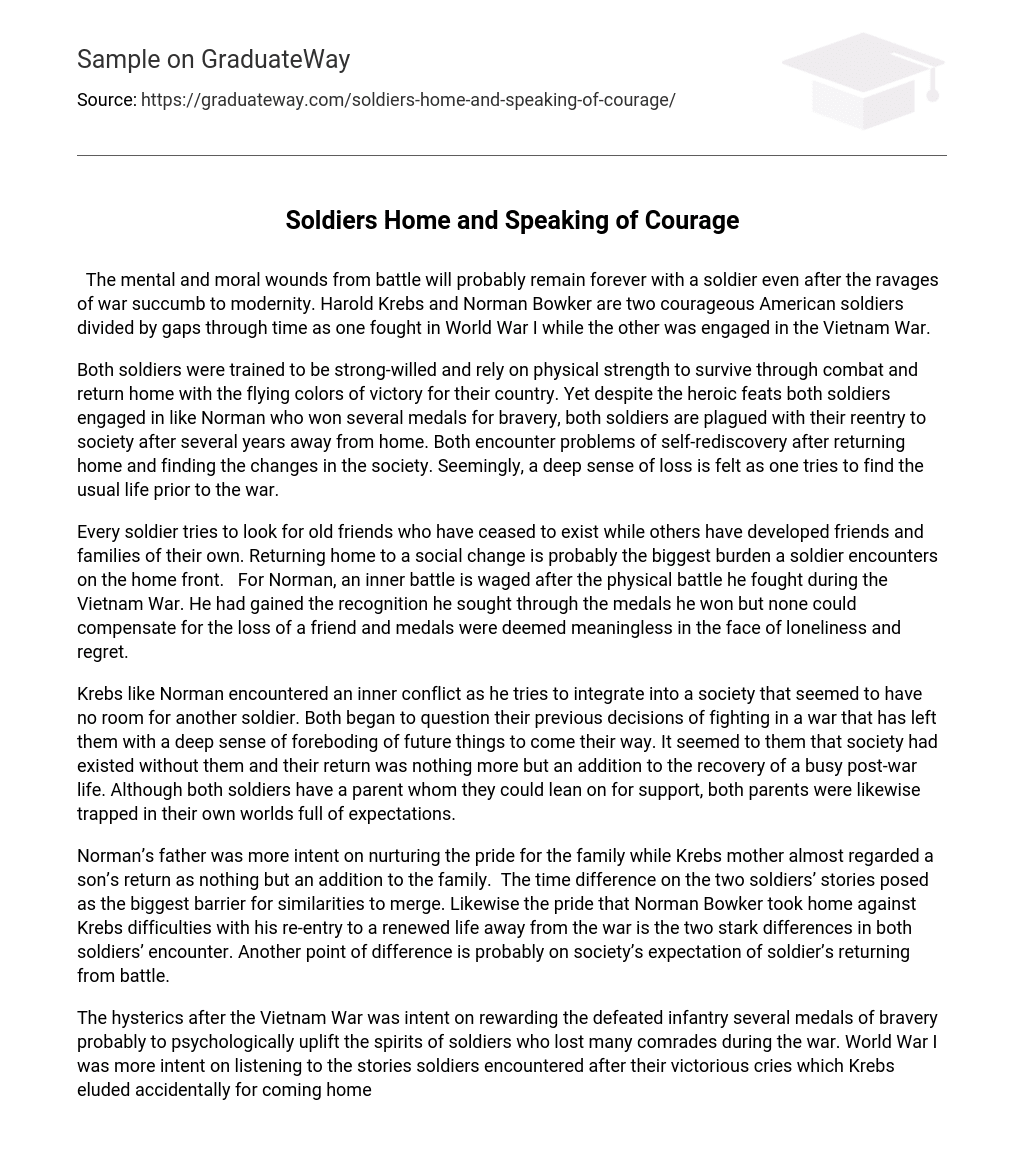The mental and moral wounds from battle will probably remain forever with a soldier even after the ravages of war succumb to modernity. Harold Krebs and Norman Bowker are two courageous American soldiers divided by gaps through time as one fought in World War I while the other was engaged in the Vietnam War.
Both soldiers were trained to be strong-willed and rely on physical strength to survive through combat and return home with the flying colors of victory for their country. Yet despite the heroic feats both soldiers engaged in like Norman who won several medals for bravery, both soldiers are plagued with their reentry to society after several years away from home. Both encounter problems of self-rediscovery after returning home and finding the changes in the society. Seemingly, a deep sense of loss is felt as one tries to find the usual life prior to the war.
Every soldier tries to look for old friends who have ceased to exist while others have developed friends and families of their own. Returning home to a social change is probably the biggest burden a soldier encounters on the home front. For Norman, an inner battle is waged after the physical battle he fought during the Vietnam War. He had gained the recognition he sought through the medals he won but none could compensate for the loss of a friend and medals were deemed meaningless in the face of loneliness and regret.
Krebs like Norman encountered an inner conflict as he tries to integrate into a society that seemed to have no room for another soldier. Both began to question their previous decisions of fighting in a war that has left them with a deep sense of foreboding of future things to come their way. It seemed to them that society had existed without them and their return was nothing more but an addition to the recovery of a busy post-war life. Although both soldiers have a parent whom they could lean on for support, both parents were likewise trapped in their own worlds full of expectations.
Norman’s father was more intent on nurturing the pride for the family while Krebs mother almost regarded a son’s return as nothing but an addition to the family. The time difference on the two soldiers’ stories posed as the biggest barrier for similarities to merge. Likewise the pride that Norman Bowker took home against Krebs difficulties with his re-entry to a renewed life away from the war is the two stark differences in both soldiers’ encounter. Another point of difference is probably on society’s expectation of soldier’s returning from battle.
The hysterics after the Vietnam War was intent on rewarding the defeated infantry several medals of bravery probably to psychologically uplift the spirits of soldiers who lost many comrades during the war. World War I was more intent on listening to the stories soldiers encountered after their victorious cries which Krebs eluded accidentally for coming home later than the rest. Whether victorious or defeated in battle, brave soldiers come home faced with internal problems of adapting to a busy environment that strives to recover after a war. Socially, old friends may no longer be there for them after long years of absence while others have perished.
In effect soldiers come home waging a different war within themselves which society has to recognize in the face of their undying love and service to the fatherland. Reference O’Brien, Tim. “Speaking of Courage,” in The Things They Carried. Boston: Houghton Mifflin, 1990.
Hemingway, Ernest. “Soldiers Home,” in In Our Time. Ohio: Scribner, 1996.





